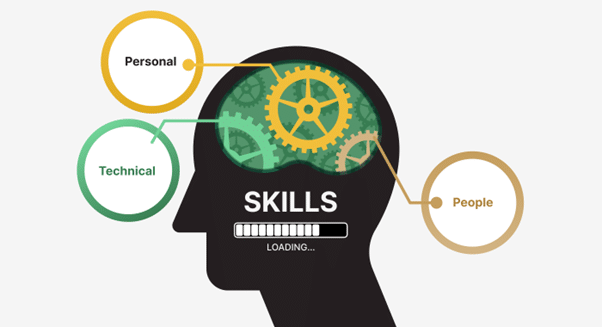In the current dynamic business landscape, the role of a Business Analyst has played a critical linchpin in software development and project management, especially at zen8labs. The multifaceted responsibilities of a Business Analyst revolve around bridging the gap between technical jargon and business requirements, ensuring that software products not only meet but exceed customer needs and expectations.
So, you’ve heard about this mysterious creature known as the Business Analyst, huh? They’re like the Sherlock Holmes of the business world, solving puzzles that no one knew existed. But wait, what do they even do, and how can you become one? Well, stick around, zen8labs team will decode the business analyst mystery with you, one witty quip at a time!
What Pivotal Role Does a Business Analyst Play in Shaping Software Projects?
Business Analyst in general
A Business Analyst isn’t confined solely to the Information Technology (IT) sector but extends their influence across various domains. The term “business” here doesn’t just imply commerce but encompasses “issues” or “matters” at large. This signifies that Business Analysts possess the ability to analyze and resolve complex issues that organizations encounter.

In software development and project management, the role of a Business Analyst is akin to that of a translator who bridges the communication chasm between two distinct languages: technical jargon and business requirements. Imagine a scenario where a software development team like zen8labs is tasked with creating a cutting-edge mobile app for a retail company. Our developers, fluent in coding languages, might have little understanding of the intricate aspects of retail operations. This is where the Business Analyst steps in.
Business Analyst in Software project
In the context of software projects, Business Analysts play a pivotal role. They are not lone superheroes but rather connectors who closely interact with multiple stakeholders, ranging from end-users, customers, and development teams to various departments within the organization. The Business Analyst’s task is to thoroughly understand the needs and requirements of these parties and then transform them into the most suitable solutions.
The most significant value that Business Analysts bring to software projects is their profound understanding of the organization’s current state and their capability to systematize what needs to be done to achieve improvement. They are not the ones providing all the solutions but often serve as guides in identifying the problem and working collectively with the team to find the best solutions.
When everyone in the project comprehends the objectives and directions clearly, executing and realizing the solutions becomes much easier. The role of the Business Analyst not only ensures the smooth implementation of software development projects but also contributes to the organization’s enhancement and sustainable development.
So, what visions guide Business Analyst’s analytical arts?

The Vision of Clarity
Business analysts seek to unravel the tangled webs of complexity and ambiguity. They envision a clear path through the fog of uncertainty, distilling intricate problems into comprehensible components. their analytical skills illuminate the way forward, ensuring that everyone involved in a project shares a common understanding.
The Vision of Empathy
Business analysts are not just data analysts; they are human interpreters. They aim to see the world through the eyes of diverse stakeholders, from end-users to executives. This vision guides them to empathize with the pain points and aspirations of different parties, fostering solutions that resonate with the human experience.
The Vision of Innovation
Business analysts envision possibilities that others might overlook. Their analytical minds are the catalysts for innovation, envisioning a future where existing problems have elegant and efficient resolutions.
The Vision of Continuous Improvement
They see beyond the status quo, identifying areas for optimization and efficiency gains. Their analytical insights guide organizations on a perpetual journey of improvement.
The Vision of Stakeholder Satisfaction
They see beyond the immediate requirements to the broader objectives of ensuring that software solutions meet and exceed customer needs and expectations. This vision propels them to advocate for user-centric designs and solutions.
The Vision of Project Success
Above all, Business analysts envision projects that succeed in delivering value. They are the architects of software project success, ensuring that every analytical insight contributes to achieving software project goals and aligning with the organization’s strategic vision.
What are essential skills for a Business Analyst?
Essential skills for a Business Analyst encompass a wide array of capabilities, each vital for excelling in this role. Here are some of the key skills that are indispensable.
Requirements Analysis: Proficiency in gathering, documenting, and managing requirements is a cornerstone of the Business analyst role. They must be able to elicit and prioritize business and system requirements.

Communication Skills
Effective communication is paramount for a Business analyst. They need to convey complex technical information in a clear and understandable manner to both technical and non-technical stakeholders. A Business analyst is the orator, bridging realms between business stakeholders and the development sorcerers. Their incantations in clear and concise communication ensure that both parties grasp the essence of each other’s intentions and the limits of the project. So, what magical words must they learn to communicate effectively?
Analytical Thinking
Yet, it is their analytical prowess that truly sets them apart. Business analysts must have strong analytical skills to evaluate data, identify patterns, and draw meaningful conclusions. This skill is crucial for understanding business problems and proposing effective solutions.
Problem-Solving
Business analyst are often tasked with resolving complex business challenges. They need to employ creative problem-solving techniques to develop innovative solutions.
Critical Thinking
Business analysts should possess the ability to evaluate situations, assess risks, and make informed decisions to guide project success.
Technical Proficiency
While Business analysts are not developers, they should have a fundamental understanding of technology and software development processes. This knowledge helps them bridge the gap between business needs and technical solutions.
Project Management
Understanding project management methodologies like Agile, Scrum, or Waterfall is essential. Business analysts often work closely with project managers to ensure successful project execution.
Interpersonal Skills
Building strong relationships and fostering collaboration among diverse stakeholders is crucial for a Business analyst ‘s success. They must be skilled at managing conflicts and facilitating consensus.
Attention to Detail
Precise documentation and a keen eye for detail ensure that requirements are accurately captured and implemented.
Negotiation Skills
Business analysts often negotiate requirements and priorities with different stakeholders, balancing conflicting interests to reach a consensus. To develop better negotiation skills, business analysts should have realistic goals before negotiations, planning, and practicing their listening skills and empathy.
Time Management
Effective time management allows Business analysts to meet project deadlines and juggle multiple tasks efficiently.
Conclusion
In the dynamic software project environments like zen8labs, particularly when following Agile incantations, Business analysts must be the shape-shifters. Their agility, proactivity, and adaptability are the charms that steer projects toward triumphant conclusions, even amidst the ever-shifting winds of change. Thus, the path to becoming a Business analyst virtuoso blends a profound quest for knowledge with the mastery of enchanting skills – a journey where each spell brings them closer to their magical zenith.
For more information and knowledge about Business Analysis, follow our blog here!
Van-Anh Nguyen, Business Analyst


